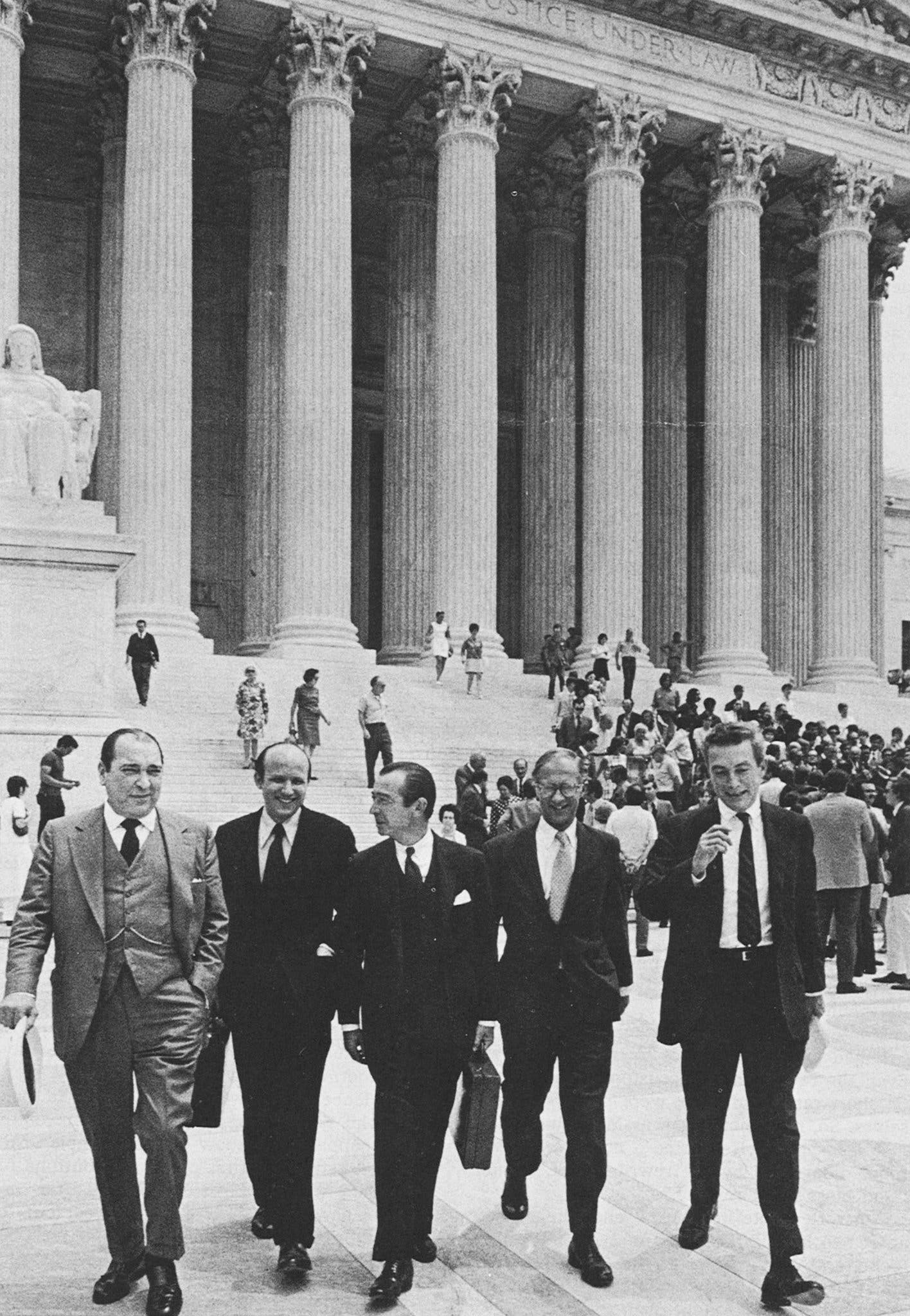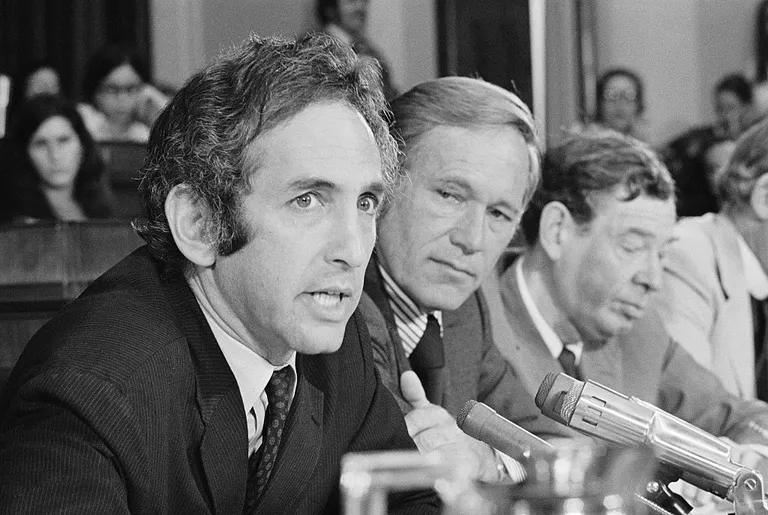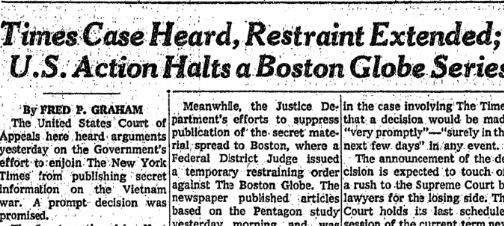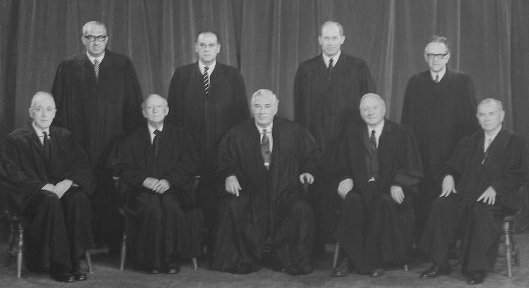Court Case
[ New York Times]
[ New York Times]

The New York Times Co. v. United States supreme court case on June 25th, 1971, displayed the debate between National Security and Free Press.

"Daniel Ellsberg testifies as a witness in a three-day before Congress concerning the Pentagon Papers," 1971, Getty Images
“Words which, ordinarily and in many places, would be within the freedom of speech protected by the First Amendment may become subject to prohibition when of such a nature and used in such circumstances as to create a clear and present danger that they will bring about the substantive evils which Congress has a right to prevent.”
- Justice Oliver Wendell Holmes on Schenck vs United States, Justia Law, March 3, 1919
Leading the United States Government, attorney Erwin Griswold argued the publications threatened national security, referencing the Espionage Act of 1917.
“Whoever having unauthorized possession of, access to, or control over any document, writing, code book, signal book, sketch, photograph, photographic negative, blueprint, plan, map, model, instrument, appliance, or note relating to the national defense, or information relating to the national defense which information the possessor has reason to believe could be used to the injury of the United States or to the advantage of any foreign nation, willfully communicates, delivers, transmits or causes to be communicated, delivered, or transmitted, or attempts to communicate, deliver, transmit or cause to be communicated, delivered, or transmitted the same to any person not entitled to receive it, or willfully retains the same and fails to deliver it to the officer or employee of the United States entitled to receive it [fines or imprisonment].”
- Section 793 of the ESPIONAGE ACT, Cornell Law School, 1917
On the New York Times side, attorney Andrew Bickel argued that the prior restraint violated the First Amendment by repressing publications.

June 27, New York Times
“And the real argument is, well you add publication to that and it makes it a little more difficult. I think Mr. Chief Justice that that is a risk that the
First Amendment signifies that this society is willing to take, that is part of the
risk of freedom that I would certainly take.”
- Alexander Bickel in his Oral Argument, Oyez.org, 1971

Supreme Court Justices, umkc.edu
While most judges concurred that the violation of national security did not warrant prohibiting the freedom of press, other judges believed that the first amendment could be tested. On June 30th, 1971, the case ended with a 6-3 decision dissolving the restraining order, marking a major victory in preserving the First Amendment.
“ The First Amendment, after all, is only one part of an entire Constitution...Each provision of the Constitution is important, and I cannot subscribe to a doctrine of unlimited absolutism for the First Amendment at the cost of downgrading other provisions.”
- Harry Blackmun, Justia Law, June 30, 1971
“In revealing the workings of government that led to the Vietnam War, the newspapers nobly did that which the Founders hoped and trusted they would do.”
- Hugo L. Black, Cornell Law School, June 30, 1971